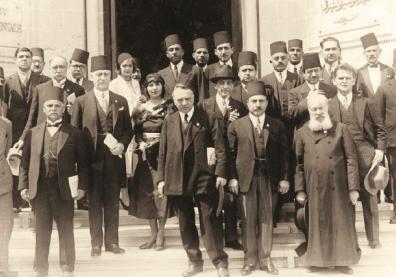Book presentation: "The Cairo Congress of 1932. Arab music in search of its identity".

Summary of the event:
The Arab Music Congress (1932), which had brought together in Cairo many musicologists from East and West, as well as numerous Arab musicians, saw several visions of future modern Arab music clash: on the one hand, conservatives who remained attached to tradition, improvisation and tarab (musical emotion in live performance); and on the other, reformists who wished to use the tools of the West to adapt to theater, radio and cinema.
The historian Bernard Moussali (1953-1996), who was preparing an analysis of the Congress debates in his doctoral thesis, had put this crucial event into perspective with the ancient sources of medieval Arab music, the late Ottoman period, the Arab Renaissance, Nahda, the patronage of Egypt's khedives since the 19th century and the contribution of minorities. He also set these debates in the context of ongoing developments, notably the first commercial recordings on 78 rpm discs.
After the death of B. Moussali, and the republication of the complete recordings made during the Congress (by the Bnf in 2015), Jean Lambert edited this unfinished text (éditions Geuthner, 2024), adding to it the additions made by research over the last thirty years. The result is a proposal for interpreting the historical and anthropological meanings of the Cairo Congress: between tradition and modernity, between unity and diversity of Arab culture, emerge, in music perhaps more than in other disciplines, the subtleties of the quest for Arab identity in contemporary times, always in crisis and always under construction.
Speakers:
- Jean Lambert - Book presentation
- Frédéric Lagrange (historian of Egyptian music),
- Jean-Patrick Guillaume (B. Moussali's former thesis supervisor),
- Myra Prince (Geuthner Editions),
- Maria Goux-Pelletan (teacher, member of the Moussali family).
Round table coordinator: Julien Sibileau (INALCO, CERMOM),
The round table will be followed by a friendly drink and book signing by Jean Lambert.